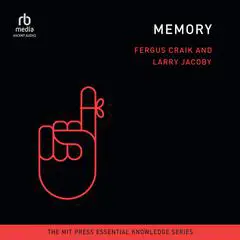 Audio Sample Unavailable
Audio Sample Unavailable
Computational Thinking Audiobook
 Audio Sample Unavailable
Audio Sample Unavailable
Quick Stats About this Audiobook
Total Audiobook Chapters:
Longest Chapter Length:
Shortest Chapter Length:
Average Chapter Length:
Audiobooks by this Author:
Publisher Description
A few decades into the digital era, scientists discovered that thinking in terms of computation made possible an entirely new way of organizing scientific investigation; eventually, every field had a computational branch: computational physics, computational biology, computational sociology. More recently, "computational thinking" has become part of the K–12 curriculum. But what is computational thinking? This volume in the MIT Press Essential Knowledge series offers an accessible overview.
The authors explain that computational thinking (CT) is not a set of concepts for programming; it is a way of thinking that is honed through practice: the mental skills for designing computations to do jobs for us, and for explaining and interpreting the world as a complex of information processes. Mathematically trained experts (known as "computers") who performed complex calculations as teams engaged in CT long before electronic computers. The authors identify six dimensions of today's highly developed CT—methods, machines, computing education, software engineering, computational science, and design—and cover each in a chapter. Along the way, they debunk inflated claims for CT and computation while making clear the power of CT in all its complexity and multiplicity.
Download and start listening now!
Computational Thinking Listener Reviews
Be the first to write a review about this audiobook!
About the Authors
Matti Tedre is the author of The Science of Computing.Peter J. Denning is coauthor of Great Principles of Computing and The Innovator’s Way: Essential Practices for Successful Innovation.
About Steven Jay Cohen
Steven Jay Cohen has been telling stories his whole life, and has worked professionally as a storyteller since 1991. A classically trained actor, he has worked both on stage and behind the microphone for most of his career. Born and raised in Brooklyn, Steven now resides in scenic western Massachusetts.






















